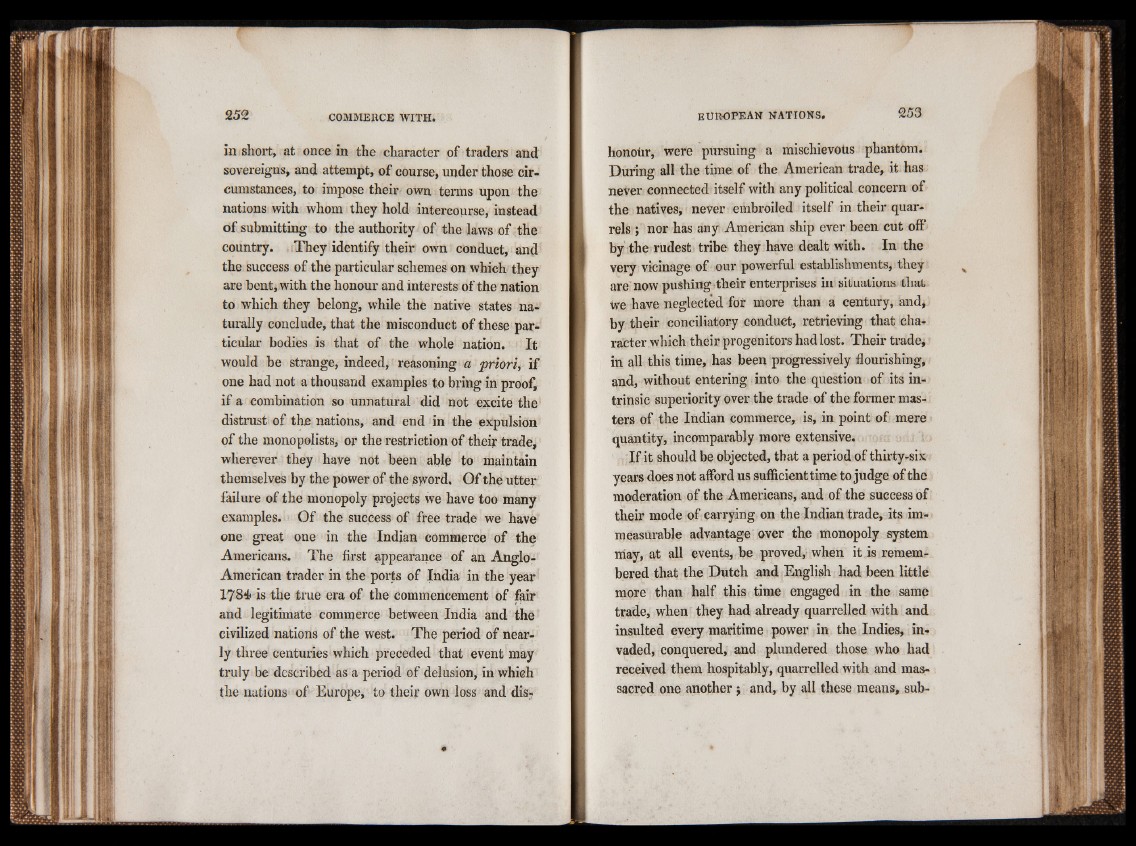
in short, at once in the character of traders and
sovereigns, and attempt, of course, under those circumstances,
to impose their own terms upon the
nations with whom they hold intercourse, instead
of submitting to the authority of the laws of the
country. They identify their own conduct, and
the success of the particular schemes on which they
are bent, with the honour and interests of the nation
to which they belong, while the native states naturally
conclude, that the misconduct of these particular
bodies is that of the whole nation. It
would be strange, indeed, reasoning a priori if
one had not a thousand examples to bring in proof,
if a combination so unnatural did not excite the
distrust of the nations, and end in the expulsion
of the monopolists, or the restriction of their trade*
wherever they have not been able to maintain
themselves by the power of the sword. Of the utter
failure of the monopoly projects we have too many
examples. Of the success of free trade we have
one great one in the Indian commerce of the
Americans. The first appearance of an Anglo-
American trader in the ports of India in the year
1784 is the true era of the commencement of fair
and legitimate commerce between India and the
civilized nations of the west. The period of nearly
three Genturies which preceded that event may
truly be described as a period of delusion, in which
the nations of Europe, to their own loss and dishonoür,
were pursuing a mischievous phantom.
During all the time of the American trade, it has
never connected itself with any political concern of
the natives, never embroiled itself in their quarrels
j nor has any American ship ever been cut off
by the rudest tribe they have dealt with. In the
very vicinage of our powerful establishments, they
are now pushing their enterprises in situations that
We have neglected for more than a century, and,
by their conciliatory conduct, retrieving that character
which their progenitors had lost. Their trade*
in all this time, has been progressively flourishing,
and, without entering into the question of its intrinsic
superiority over the trade of the former masters
of the Indian commerce, is, in point of mere
quantity, incomparably more extensive.
If it should be objected, that a period of thirty-six
years does not afford us sufficient time to judge of the
moderation of the Americans, and of the success of
their mode of carrying on the Indian trade, its immeasurable
advantage over the monopoly system
may, at all events, be proved, when it is remembered
that the Dutch and English had been little
more than half this time engaged in the same
trade, when they had already quarrelled with and
insulted every maritime power in the Indies, invaded,
conquered, and plundered those who had
received them hospitably, quarrelled with and massacred
one another $ and, by all these means, sub